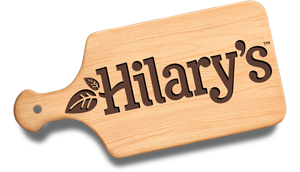It’s Hemp History Week!

The month of June hosts Hemp History Week, the one week per year where grassroots supporters, farmers, and producers everywhere come together to promote changing policies for hemp production in the United States. Currently, most states do not have legislation in place for the regulation of hemp farming, and under Federal law, it is illegal to grow any cannabis (even plants that contain no THC) in the united states.
So, What’s So Important About Hemp?
Hemp is a crop that produces fiber and oils and has a deep history in the United States. Hemp has been grown here and used industriously since the first settlers arrived in the 1600’s. Hemp fiber was used then in paper, ropes, clothing and more. The practice of farming hemp was completely legal (although heavily taxed after the 1930’s) and the produce of hemp crops was used by multiple entities, including the U.S. government. Unfortunately, in 1970 hemp farming was outlawed by the federal government when it was decided that hemp would be classified as a drug (marijuana). It is important to note that there is a difference between cannabis plants grown to produce marijuana and those that are grown to produce hemp. Hemp plants do not contain THC, which is the chemical that makes marijuana a mind altering substance.
Today, much of the hemp used in the united states is imported from other countries. Only a handful of states have passed laws allowing hemp farming. Because of the multitude of uses that hemp fiber and oil has, this crop is a very valuable one. Hemp advocates are working to bring back this crop partially because of the potential impact it could have to the U.S. economy.
What Do We Need Hemp for Now?
While synthetic fibers have been produced that can be used in place of hemp in many of its traditional uses, there is still a market and a need for ropes, textiles and more made from hemp. Hemp is also a highly nutritious super food. Hemp seeds are rich in protein and have all 10 essential amino acids, which makes them a “complete protein” and excellent for vegans and vegetarians. They also contain omega-3, omega-6, stearidonic acid (SDA), and the rare omega-6 Gamma Linolenic Acid (GLA).
Hemp seeds can be eaten on their own (typically they are shelled first, look for them labeled as “hemp hearts”, added to smoothies, or ground up and made into beverages, baked goods, pasta, and more. Hemp seeds are pressed to expel their oil too. Hemp oil is nutty, flavorful and simple to cook with, and ingesting hemp oil is shown to have a number of health benefits, including reducing cholesterol, maintaining hormonal balance, and boosting immunity. You can also find hemp oil in many hair conditioners and lotions because of its amazing emollient abilities.
What Should I Do During Hemp History Week?
Now is also a great time to try some hemp if you never have before! Head to your local grocery store or natural foods store and pick up a bottle of hemp oil or a package of hemp hearts. You can also find hemp milk, which is a great dairy-free alternative, in shelf stable milk aisle I love to add hemp milk to my morning smoothies or top salads with the seeds; I bet that you will too!

Cindy Gordon is a foodie who loves to blog about gluten free vegetarian/vegan recipes on her website Vegetarian Mamma. Cindy's family is dedicated to finding/creating recipes and products that fit their families dietary needs. Cindy resides in Ohio with her husband and two boys (born '07 & '10). She enjoys spending time with her family, the outdoors, gardening, wine and cooking!

